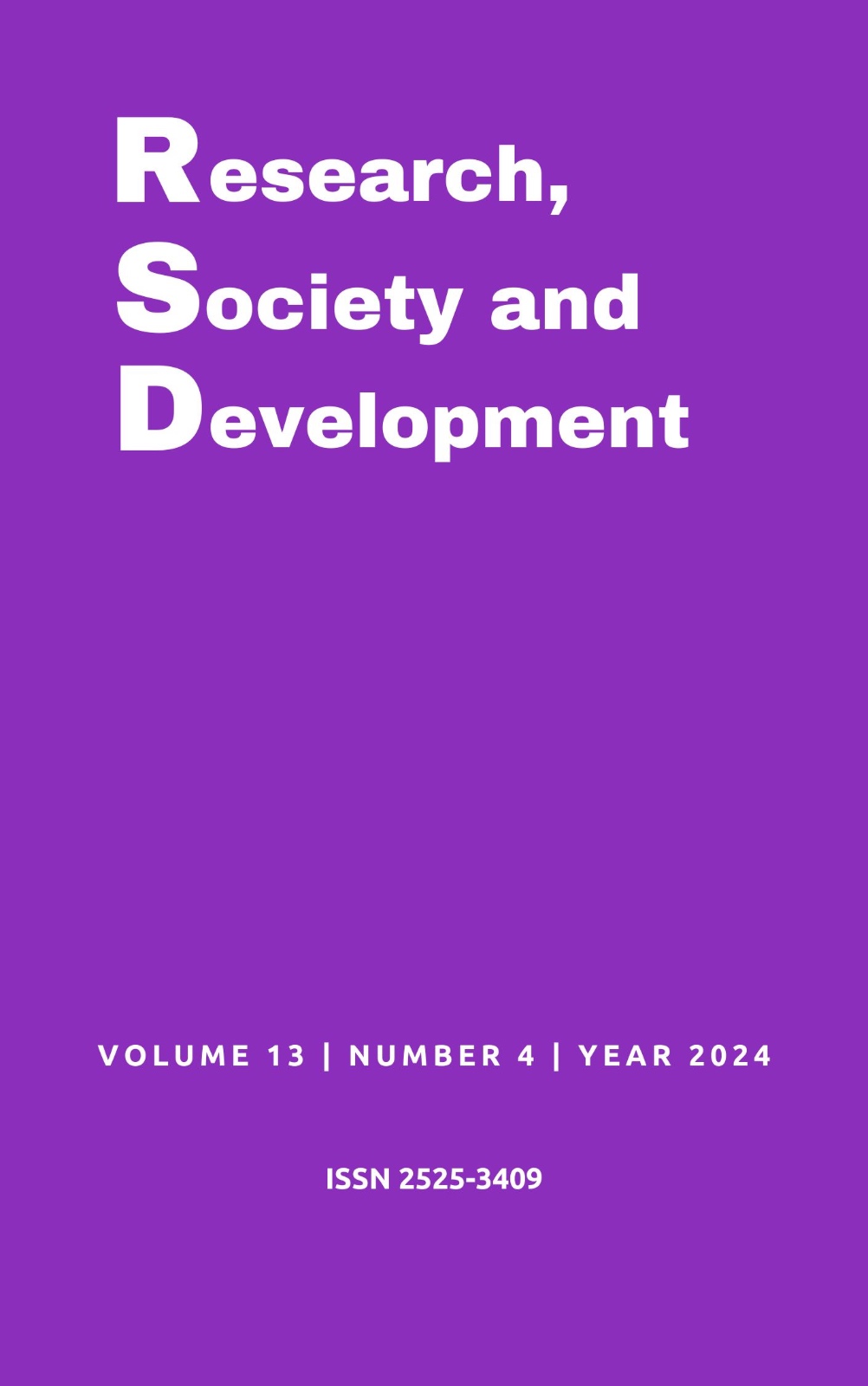The use of maker culture in a socio-educational environment
DOI:
https://doi.org/10.33448/rsd-v13i4.45623Keywords:
Education; Innovation; Teaching; Interaction.Abstract
The objective of this article is to present an action research study of the project that aimed to use, within the maker culture, playful materials adapted in the educational context. In this case, it stands out in basic education in its entirety, with the intention of expanding and improve the teaching-learning process, as well as putting into practice teaching methodologies and/or active methodologies that they can use during the academic year and included in interdisciplinary activities, as a way of assisting teachers in their teaching methodology, and consequently, expanding the student's potential and skills. From this perspective, the maker culture, within its possibilities and experimentation, can create original means so that the student can create, recreate and develop projects using everyday materials including laser printing machines. The maker culture highlights the breadth of information and human knowledge, capable of creating, copying and recreating, providing students with the knowledge and practice necessary to begin their inclusion in the job market, and in the case of the participants in this project, the their resocialization.
References
Brasil. (2023). Centro de Referência Especializado de Assistência Social–CREAS–https://www.gov.br/mds/pt-br/acoes-e-programas/suas/unidades-de-atendimento/centro-de-referencia-especializado-de-assistencia-social-creas
Brasil. (2016). Constituição da República Federativa do Brasil: texto constitucional promulgado em 5 de outubro de 1988, com as alterações determinadas pelas Emendas Constitucionais de Revisão nos 1 a 6/94, pelas Emendas Constitucionais nos 1/92 a 91/2016 e pelo Decreto Legislativo no 186/2008. – Brasília: Senado Federal, Coordenação de Edições Técnicas.
Brasil. (1990). Estatuto da Criança e do Adolescente, lei federal, 8.069/1990, de 13 de julho de 1990. Diário Oficial da República Federativa do Brasil, Poder Executivo, Brasília.
Brasil. (2002). Governo do Estado do Rio Grande do Sul. Assembleia Legislativa. Gabinete de Consultoria Legislativa. Lei nº 11.800, de 28 de maio de 2002. https://www.al.rs.gov.br/FileRepository/repLegisComp/Lei%20n%C2%BA%2011.800.pdf
Brasil. (2002). Governo do Estado do Rio Grande do Sul. Assembleia Legislativa do Estado do Rio Grande do Sul. Decreto nº 41.664, de 06 de junho de 2002. https://www.al.rs.gov.br/legis/M010/M0100099.ASP?Hid_Tipo=TEXTO&Hid_TodasNormas=832&hTexto=&Hid_IDNorma=832.
Brasil. (2012). Sistema Nacional de Atendimento Socioeducativo, lei federal, 12.594/2012, de 18 de janeiro de 2012. Diário Oficial da República Federativa do Brasil, Poder Executivo, Brasília.
Camargo, F. & Daros, T. (2018). A sala de aula inovadora: estratégias pedagógicas para fomentar o aprendizado ativo. Penso.
Casa Fundamental. (2020). Cultura Maker: A ferramenta de transformação da escola do presente da teoria à prática. e-book. https://casafundamental.com.br/wp-content/uploads/2020/11/casa-fundamental-ebook_makers.pdf.
FASE. (2023). Fundação de Atendimento Sócio-Educativo. https://www.fase.rs.gov.br/inicial.
Freitas, A. L. C. (2017). Design e artesanato: uma experiência de inserção da metodologia de projeto de produto. Blucher Acadêmico.
Junior, J. F. C. et al. (2023). A importância do espaço maker na escola. In. DUQUE, Rita de Cássia Soares. Org. A cultura maker e suas implicações no contexto educacional. 1. ed. Vitória: Editora Educação Transversal, p. 9-50.
Massa, A. A. G. (2020). Socioeducação: introdução à justiça restaurativa. Curitiba: Intersaberes.
Moran, J.M. (2015). Mudando a educação com metodologias ativas. [Coleção Mídias Contemporâneas. Convergências Midiáticas, Educação e Cidadania: aproximações jovens. Vol. II] SOUZA, C. A. de; TORRES O. E. (orgs.). PG: Foca Foto-PROEX/UEPG, 2015. https://rh.unis.edu.br/wp-content/uploads/sites/67/2016/06/Mudando-a-Educacao-com-Metodologias-Ativas.pdf
Nodari, P. C. (2015). Cultura de paz, direitos humanos e meio ambiente. Caxias do Sul: EDUCS.
Lopes, H. C. (2021). A prática pedagógica: protagonista, inovadora e transformadora. Paidéia: Revista do curso de pedagogia da Faculdade de Ciências Humanas, Sociais e da Saúde. Universidade FUMEC. Ano 16, n.26 (jul./dez.2021). Belo Horizonte: Universidade FUMEC.
Lopes, H. C. (2023). A importância do ensino religioso na educação básica. In: Vamos dialogar sobre o poder da educação?.23 ed. Veranópolis: Diálogo Freiriano
Lopes, R. D. (2021). Internet das coisas para jovens do ensino médio: espaços e cultura maker na escola. Coleção Maker Space, vol.1. Edição dos Autores.
Santos, M. L. dos (2020). Socioeducação – introdução à justiça restaurativa. Contentus.
Silva, L. S.; Souza, R. K (2020). Ambientes maker e sua cultura. Via Revista. 8.ed. Florianópolis: Universidade Federal de Santa Catarina.
Thiollent, M. (1986). Metodologia da pesquisa-ação. Cortez.
Downloads
Published
How to Cite
Issue
Section
License
Copyright (c) 2024 Henrique Corrêa Lopes

This work is licensed under a Creative Commons Attribution 4.0 International License.
Authors who publish with this journal agree to the following terms:
1) Authors retain copyright and grant the journal right of first publication with the work simultaneously licensed under a Creative Commons Attribution License that allows others to share the work with an acknowledgement of the work's authorship and initial publication in this journal.
2) Authors are able to enter into separate, additional contractual arrangements for the non-exclusive distribution of the journal's published version of the work (e.g., post it to an institutional repository or publish it in a book), with an acknowledgement of its initial publication in this journal.
3) Authors are permitted and encouraged to post their work online (e.g., in institutional repositories or on their website) prior to and during the submission process, as it can lead to productive exchanges, as well as earlier and greater citation of published work.

